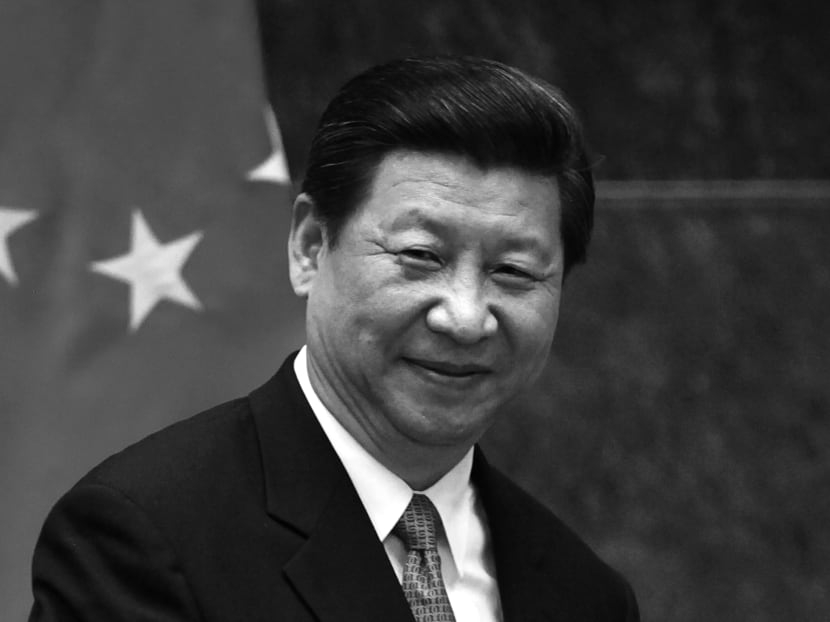The world needs more moral leadership
On March 14, both China and the Catholic Church announced their new leaders to the world — Mr Xi Jinping in Beijing and Pope Francis in the Vatican.

By coming down hard on public extravagance, President Xi sent a strong signal to all China. Photo: Reuters
On March 14, both China and the Catholic Church announced their new leaders to the world — Mr Xi Jinping in Beijing and Pope Francis in the Vatican.
In a different period, their accessions would have been described as coronations. But not in today’s circumstances.
Each has responsibility for about a fifth of humanity. China and the Catholic Church are similar in many ways. Both are ancient. Both are run by Mandarins.
In the case of the Catholic Church, according to historian Arnold Toynbee, it was the clergy which inherited the legacy of the Roman Equestrian Order.
Both China and the Church make moral claims to leadership. Each sees in the other a natural competitor.
Neither Mr Xi nor Pope Francis was elected by the entire citizenry or congregation. In both China and the Catholic Church, the idea of direct election to the top leadership would have been thought absurd.
However, for both polities, there is deep commitment to democratic centralism (a Leninist term which Catholics might object to in name, but should not in substance).
In China, despite centralised bureaucratic governance, there is much regional and local diversity. Post-Mao China has seen considerable democratisation. With urbanisation and the social media, this process of democratisation will evolve further.
But many aspects of China’s governance will have to remain centralised if the country is not to break up. The ideal of a united Chinese state is in the DNA. Within this unified framework, however, Chinese society is often fractious.
Similarly, the Catholic Church is both highly centralised and decentralised. In matters of doctrine and Canon Law (derived from Roman Law), the Vatican holds very firm. Dogmas like Apostolic succession are not up for debate. Otherwise, the Church is largely devolved with a high degree of local initiative.
A Jesuit father who pioneered United States-style community colleges in India told me that the country’s transgender community approached him to set up a college for them — so that they would not be trapped in prostitution. There are many such heartwarming examples.
SETTING A NEW TONE
With the social media revolution, the hierarchical structure of leadership in China and the Catholic Church is under attack.
Leaders once protected by ritual and distance and sometimes also by hypocrisy and ignorance are now seen as quite human after all.
Corruption and sexual misbehaviour have been widely reported, not necessarily because they have become more common — but because they are harder to hide or cover up.
Both President Xi and Pope Francis recognise the seriousness of the challenge. After assuming their respective posts, they have taken actions to set a new tone and in highly symbolic ways.
By coming down hard on public extravagance, President Xi sent a strong signal to all China.
When Pope Francis washed the feet of young prisoners on Maundy Thursday, he reminded all Catholics of the humility of Christ. By meeting and praying with refugees from Africa and the poor in Rio’s favelas, he led by example.
Whether the two men succeed or not will depend on their persistence in following through, but an important start has been made.
There are no perfect leaders and those who appear so are fakes. In today’s circumstances, it is crucial to be authentic and close to ordinary people.
For China and the Catholic Church, moral leadership is an inseparable part of all leadership. The world needs more of it. Society cannot be organised purely on the basis of law and the operation of the market.
Without moral values, society breaks down. What these common moral values should be in the world we live in today, however, has to be discussed and debated. It is certainly not enough to be amoral. For both Chinese and Catholics, the cultivation of individual virtues and the sanctity of the family are fundamental.
RECONCILIATION?
It is unfortunate that China and the Catholic Church are still estranged from each other. If the two are reconciled, the entire world will benefit. And it is not as if the differences are irreconcilable.
Give to Caesar what is Caesar’s and to God what is God’s — that surely can be a basis for cooperative co-existence. The appointment of bishops in China is not an insurmountable problem from the viewpoint of Communist and Catholic dogma.
In the 16th century, the great Jesuit Matteo Ricci researched deep into Chinese philosophy before deciding on the proper translation for “God”.
For the Chinese, all existence is thought of as what is under Heaven. The emperor was the Son of Heaven, reigning over all human affairs. Ricci decided that God should therefore be properly translated as the “Lord of Heaven”, in a sphere which posed no political threat to anybody.
It may be the calling of the first Jesuit Pope to propose an equally profound yet artful answer to a new Chinese President. ©THE GLOBALIST
ABOUT THE AUTHOR:
George Yeo was Singapore’s Minister for Foreign Affairs from 2004 to 2011 and is a regular contributor to The Globalist, where this article initially appeared under the headline, ‘China and the Catholic Church’. He was recently appointed by Pope Francis to a special commission on the reform of the Vatican’s administrative structure.






